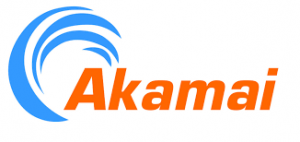 Akamai Technologies recently released its First Quarter State of the Internet report for 2016, indicating that Utah has remained a consistent leader in the U.S. for top Internet speeds and adoption rates. Rankings place Utah 5th in the nation for average Megabit per second (Mbps) connection speeds and 6th in the nation for average peak Mbps connection speeds.
Akamai Technologies recently released its First Quarter State of the Internet report for 2016, indicating that Utah has remained a consistent leader in the U.S. for top Internet speeds and adoption rates. Rankings place Utah 5th in the nation for average Megabit per second (Mbps) connection speeds and 6th in the nation for average peak Mbps connection speeds.
Utah also ranks in the top ten states for adoption rates in both the 4 Mbps and 25 Mbps categories. Across all categories, Utah remains the fastest state in the West. Utah held on to its number five ranking for average connection speeds, but saw a modest rise in its ranking for average peak connection speeds. Utah was ranked 8th for average peak speeds in the Fourth Quarter of 2015, but the state climbed to 6th in the nation for average peak speeds in the First Quarter of this year. This jump was the product of a 13% quarterly gain in this category, from 74.6 Mbps to 84 Mbps. Along with DC, a comparably small geographic region, this was the largest quarterly gain across all states.
Akamai’s Internet adoption rankings paint an interesting picture for Utah. The state ranks 10th nationally with an adoption rate of 91% at the 4 Mbps or higher threshold. Utah drops out of the top ten rankings in the 10 Mbps and 15 Mbps categories, but then ranks 7th nationally for adoption rates of 25 Mbps or higher. According to Akamai’s stats, approximately 19% of Utahns subscribe to services at 25 Mbps or higher, which is the minimum speed defined as broadband by the Federal Communications Commission (FCC). It should be noted, however, that many more Utahns have access to 25 Mbps or higher speeds but are not subscribed to services at that level.
Utah’s high Internet adoption rankings at both the 4 Mbps and 25 Mbps thresholds are likely due to the highly varied rural and urban areas across the state. In many areas of the country, higher speeds are often easier to come by in urban areas due to competition and density of subscribers. In Utah, 82% of rural and 96% of Urban communities have access to speeds of at least 25 Mbps Upload and 3 Mbps download speeds, according to data collected by the Utah Broadband Outreach Center. Member companies of Utah Rural Telecom Association currently serve 50% of Utah’s population but cover more than 75% of Utah’s total geographic area. Providers serving rural Utah face considerably tougher challenges deploying infrastructure, including difficult terrain and more costly last mile demands. These same challenges likely knock other Western states out of Akamai’s top spots.
Akamai’s report also indicates that Utah’s speeds are competitive globally, a meaningful measure for both international trade and economic development. Comparing individual states against the top ranking nations, Utah average connection speeds place the state in the number 8 spot. Only the nations of South Korea, Norway, Sweden, and Hong Kong outrank Utah’s speeds.
To read the full report, click here: